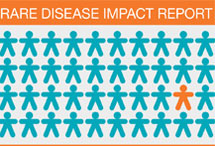Rare Disease Index Report
Rare Disease Index Report
A Detailed Picture of a Unique Set of Challenges
 After decades of investment and research, it’s encouraging to see the immense progress that’s been made in understanding and treating rare diseases. But here’s a fundamental truth: there’s still an urgent need to fully grasp the unique set of challenges facing patients, their families and the medical professionals involved when it comes to rare diseases.
After decades of investment and research, it’s encouraging to see the immense progress that’s been made in understanding and treating rare diseases. But here’s a fundamental truth: there’s still an urgent need to fully grasp the unique set of challenges facing patients, their families and the medical professionals involved when it comes to rare diseases.
It’s for this reason that Shire is publishing its Rare Disease Index Report this month, revealing for the first time a detailed picture of the health, psycho-social, societal and economic impact of rare diseases on these stakeholders.
Flemming Ornskov, who will assume the role of Shire’s CEO on April 30, 2013, will present the findings of the report at the Shire-sponsored World Orphan Drug Congress in April.
Based on a pilot study by Shire of nearly 1,000 patients in the UK and US as well as physicians, payors and thought leaders, the report aims to uncover the complexities surrounding diagnosis, scientific understanding, treatment options, and social services in the rare disease community.
And with plans to supplement this data with feedback from other countries in the future, Shire hopes the report will become a cornerstone for these efforts, ultimately helping the management of rare diseases for the greatest patient benefit.
“It’s our responsibility as a leader in rare diseases to start bringing the full extent of patient experiences to the attention of all of our stakeholders,” says Jessica Cotrone, Senior Director of Corporate Communications at Shire. “We aim to figure out where the gaps in support are and then become an active part of the solution.”
Rare diseases not only frequently affect children, but can also come with a whole host of underlying conditions, each requiring the attention of a specialist practitioner.
“In speaking anecdotally to patients and stakeholders, for example, we’ve uncovered that a mom may have to take her child to five different appointments a week, every week,” Jessica continues. “Not just with a General Practitioner, but perhaps also with a psychologist, an occupational therapist, a speech therapist and someone specializing in, say, heart conditions. Stuck in this cycle, parents can quickly feel the financial as well as the emotional burden of the disease. In fact, some can end up filing for bankruptcy.
Pockets of people, such as physicians and patient advocates, are already aware of sad truths like this, but through the report, Shire aims to uncover the full extent of such complex challenges for all to see. It’s not just what we identify through the report that matters, but also what we do with that in- formation,” adds Jessica. “Following publication, we’ll need to review our next steps in bringing stakeholders together to address unmet needs in the rare disease community. We want to become a catalyst for change and a connector whose focus is on the greater good of our patients."
